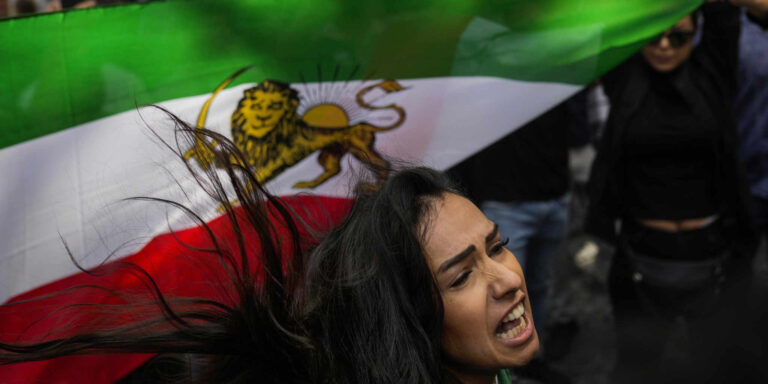I saw the first video a week ago.
The caption read, “get ready with me in Iran”. The woman in the video dressed in fabric from head to toe and wrapped her hair loosely in a head covering. The second video said, “What we wear for a party in Iran.” She wore a red cocktail dress and put on layer after layer, saying she would take the layers off after safely arriving at the party. The final video’s caption read, “Get ready with me to get killed in Iran.” That was the last video I saw. Iran shut off the internet.
On Sept. 13, Masha Amini was arrested by Iran’s morality police for not wearing a hijab in public. After being in a coma for three days, Amini died from the injuries received during her arrest.
The uproar was almost immediate. Roughly 100 cities around the country exploded in protest. Marches and chants have filled the streets of Iran. Women are cutting their hair, removing their hijabs, and even burning them in protest. In many locations, law enforcement has responded with violence, tear gas, and even opening fire on the protestors. The Iranian government’s restriction of the internet has caused information to come in a slow trickle. But as of now, the death toll is 133.
It seems unfathomable to us in a place like Wilmore that a woman was tortured and killed for something like not covering her hair. The immediate assumption for many Christians is that the religion of Islam is to blame. It is believed to be inherently evil. The religion has become the low hanging fruit that Christians tend to pick for critique. But it is not Islam at fault. It is the tyrannical government using Islam as a weapon to bludgeon citizens that don’t abide by their rules. Just like we cannot allow terrorism to determine our view of Islam, we cannot allow this religion to become the scapegoat in this tragedy. Atrocities have been committed in the name of Jesus Christ. Just as we would not want them to define the faith most practice on this campus, we can’t blame Islam instead of those who wickedly wield it.
Not every woman in Iran is Muslim, but hijab laws force them to act as though they were. For many women, the hijab is something that they value as sacred and holy. Not only that, but many find it empowering. By covering more of their bodies, they feel that men are forced to take them seriously instead of focusing on their appearance. Other women (both Muslim and non-practicing) feel that by dressing in the way they want, they are asserting their autonomy. Both of these preferences should be held with respect. The valuing of women means respecting the choices that they make regarding their own appearance. No matter what a woman does or does not wear, she should be treated as a human being worthy of honor, love, and respect. The government should not be a factor. And women’s lives should most definitely not be at risk.
What happened on Sept. 13 is an atrocity. It is a violation of humanity. Protest and outrage are a natural result. The people of Iran are crying out against a tyrannical government. They demand autonomy for all citizens, especially the women from whom that autonomy is being ripped.
Many of the women burning their hijabs value them and desire to wear them. But what they value more is the ability to choose to wear them. The act of them burning their head coverings and cutting their hair is, in many ways, a sacrifice for the sake of their freedom and autonomy. It is a demonstration of their free will, something that should be valued according to Christian beliefs.
The taboo among Christians regarding Islam should not prevent anyone from recognizing the tyranny of the Iranian government and the need for justice. There is justifiable outrage in Iran. If freedom is such a pinnacle of the American belief system, we should be outraged too.




